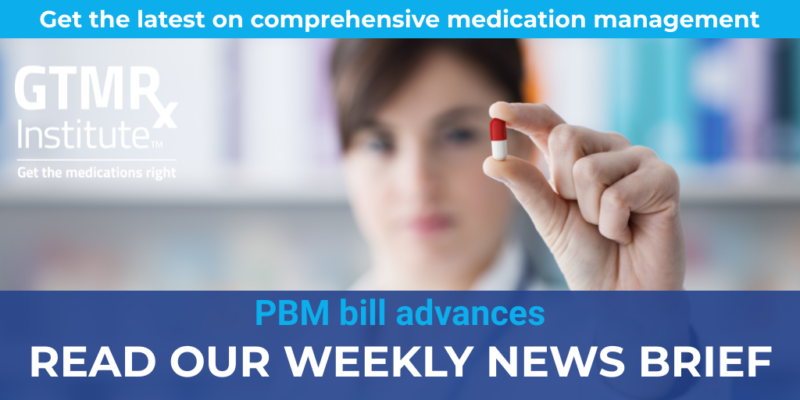PBM bill advances
Pharmacy benefit managers would be required to report more information on their deals with pharmaceutical companies under legislation unanimously approved by a House committee last month. PBMs would need to create reports for employer clients each year that detail prescription drug spending, acquisition costs, out-of-pocket expenses, formulary placement and rebates. In addition, the Government Accountability Office would produce a report on group health plan pharmacy networks, including those that health insurers own. (Modern Healthcare)
SCOTUS revives whistleblower suits
Last week, the US Supreme Court revived two whistleblower lawsuits that allege Safeway and SuperValu overcharged the government for prescription drugs by about $200 million. The cases involve allegations that major retail pharmacies across the country knowingly overcharged Medicaid and Medicare by overstating their usual and customary prices. Justice Clarence Thomas, writing for the unanimous court, said that the law clearly provides that vendors billing the government are liable for damages if they “believed that their claims were not accurate.” (NPR)
Practice Transformation
It’s personal: The danger of polypharmacy
“We must demand the use of evidence-based treatments in lieu of simply prescribing multiple medications,” writes attorney and advocate Andrea Sonnenberg. She’s seen the consequences of unmanaged polypharmacy: Five years ago, her 21-year-old son Bradley died of psychiatric drug interactions, after years of battling anxiety, depression, and an eating disorder. Not a single one of his doctors had a full picture of the breadth of his treatment. (TIME)
Evidence & Innovation
UCSF now offers PGx testing
Last month, UC San Francisco became the first hospital in California, and one of only a few nationwide, to offer pharmacogenetic testing. The test will provide critical clues about a patient’s unique genetic makeup, enabling pharmacists to tailor medications and dosages accordingly. “Pharmacogenomics will be part of the clinical information our pharmacists will now be able to use to ensure patients receive the most effective medication, and to determine the precise dose,” said program co-lead Lisa Kroon, PharmD, chair of the UCSF Department of Clinical Pharmacy. (News-Medical.Net)
A new drug pricing paradigm?
Political pressure is forcing the biopharmaceutical industry to rethink its pricing strategy, argues a Progressive Policy Institute commentary. “This new paradigm is the unintended but welcome result of legislative, regulatory, and market pressures exerted on the biopharmaceutical industry.” It began with a dramatic decline in insulin prices, and it’s spreading to other brand drugs. Who are the primary losers of this “titanic” paradigm shift? “PBMs and parties who benefit handsomely from high list prices, providing the highest rebate revenue.” (Progressive Policy Institute)
Policy Solutions
Opinion: CMS Universal Foundation overburdens primary care
CMS introduced the Universal Foundation to standardize quality measures. However, critics argue that the proposed measures overwhelmingly burden primary care and neglect the purpose of care delivery and patient-centricity. Some of the measures proposed in the Universal Foundation could make strong contributions to an overall set created to serve the laudable aspirations of this program, but the current proposed measures are “menial and lackluster.” Universal Foundation may reduce the burden for the health system generally, but “it loads nearly all the burden on primary care, a workforce already buckling from historic and systemic lack of support.” (Health Affairs Forefront)
In Case You Missed It!
Learn about the peer-reviewed evidence showcasing the value of CMM, through improvements in access to care, provider work life, outcomes and patient satisfaction as well as a reduction in costs. These findings outline the CMM team-based care process that can be implemented in a variety of health care systems to ensure positive patient outcomes.
Developed by the Evidence-Based Resources Subgroup of the Practice and Care Delivery Transformation Workgroup.
NEW 2022 GTMRx Resource | Comprehensive Medication Management via Telehealth Modality in Team-Based Care:A Review of the Evidence on Quality, Access and Costs, December 2022
Learn about the peer-reviewed evidence showcasing the value of CMM delivered as a service via telehealth and its challenges. Telehealth is a promising modality to improve access to care, facilitate patient monitoring and maintain the needed connection with patients that improves their care and health.
Developed by the Evidence-Based Resources Subgroup of the Practice and Care Delivery Transformation Workgroup.



